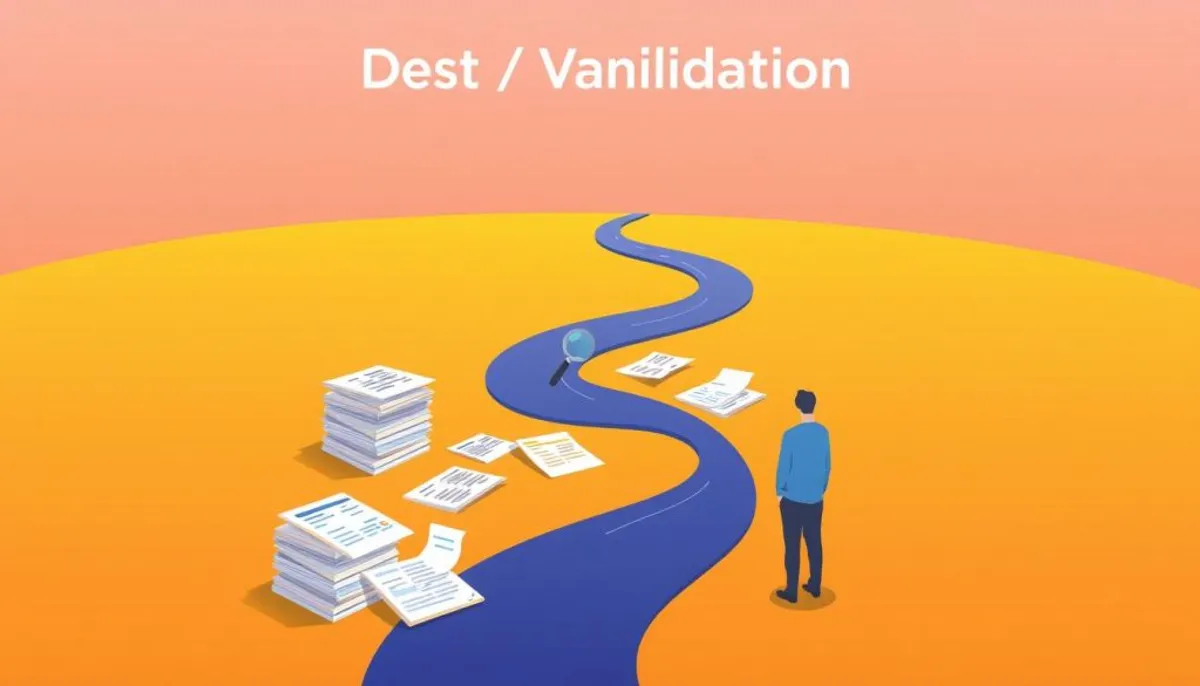Debt collection agencies are pivotal in the financial sector, tasked with recovering unpaid debts for creditors or acquiring them outright. These entities adhere to stringent guidelines outlined by the Fair Debt Collection Practices Act. Their methods to contact delinquent borrowers are diverse, encompassing phone calls and letters, with legal action sometimes employed as a last resort.
Generally, their involvement commences when a debt is at least 30 days past due. Their primary objective is to maximize the recovery of the original debt amount.

The realm of debt collection is intricate, involving numerous stakeholders and adhering to precise legal frameworks. Grasping the mechanisms employed by these agencies is crucial, whether you are a debtor or a creditor. Let us explore the intricacies of this critical financial process further.
Key Takeaways
- Debt collection agencies recover unpaid debts for creditors
- They follow rules set by the Fair Debt Collection Practices Act
- Collection tactics include phone calls, letters, and legal action
- Agencies typically work on debts at least 30 days overdue
- Understanding collection processes can help in managing personal finances
Understanding Debt Collection Agencies: Basics and Definitions
Debt collection agencies are integral to the financial system’s functioning. They assist creditors in retrieving funds, ensuring cash flow, and stabilizing credit markets. Let’s explore the essence of debt collection.
What is a Debt Collection Agency
A debt collection agency’s primary function is to recover delinquent debts on behalf of creditors. They intervene when borrowers fail to make payments for three or more consecutive months. Utilizing specialized strategies and adhering to debt collection laws, these agencies aim to recover outstanding balances.
Types of Debts Handled by Collection Agencies
Collection agencies manage a variety of debts:
- Credit card balances
- Medical bills
- Personal loans
- Auto loans
- Student loans
- Unpaid utility bills
The average debt in collections is $5,178. Credit card debt, in particular, surged to $918 billion in October 2015, from $840 billion in 2010.
The Role of Collection Agencies in the Financial System
Collection agencies are indispensable to the financial system. They play a pivotal role in maintaining a healthy credit market by facilitating fund recovery for creditors. The industry’s worth is $13 billion, employing over 40,000 individuals. Approximately one in three American adults, totaling 77 million people, have debts in collection.
These agencies typically receive just four cents on the dollar for debt acquired from original creditors. In 2014, they generated about half of their revenue ($6.6 billion) by collecting a percentage of retrieved amounts.
How Collection Agencies Work
Collection agencies are pivotal in the debt collection process. They intervene when creditors are unable to recover debts, usually after 60 days of non-payment. These entities employ diverse communication tactics to engage debtors, aiming to secure payments while ensuring legal adherence.
The Debt Collection Process
The journey starts with a creditor delegating an overdue account to a collection agency. These agencies typically charge between 25% to 50% of the recovered debt as their fee. They may also acquire delinquent debts at significantly reduced prices, known as “pennies on the dollar.”
Communication Methods and Strategies
Collection agencies leverage phone calls, letters, and emails to connect with debtors. They adhere to stringent guidelines, such as refraining from contact before 8 a.m. or after 9 p.m. They are only permitted to reach out to family members once to locate the debtor. Their primary objective is to negotiate settlements or establish payment plans.
Legal Framework and Compliance
The Fair Debt Collection Practices Act (FDCPA) regulates debt collection practices. It prohibits aggressive methods like excessive calls or threats. Non-compliance can lead to fines up to $1,000 plus additional damages. Agencies must dispatch a debt validation letter within five days of initial contact, outlining the debt and consumer rights. The time frame for debt collection varies by state, generally spanning from three to five years.
| Aspect | Detail |
|---|---|
| Agency Fee | 25-50% of recovered debt |
| Contact Hours | 8 a.m. to 9 p.m. |
| Debt Validation | Within 5 days of initial contact |
| Statute of Limitations | 3-5 years (varies by state) |
Types of Collection Agencies and Their Services
Collection agencies are pivotal in debt recovery for creditors. They vary in approach, each with its own method for collecting debts. Knowing the different types of collection agencies aids both creditors and debtors in understanding the debt collection process better.
First-Party Collection Agencies
First-party collection agencies are part of the original creditor’s structure. They manage early-stage delinquencies, typically engaging with borrowers 60-90 days past due. Their focus is on preserving customer relationships while recovering debts. They often have the flexibility to negotiate payment plans, aiming to maintain a positive relationship with the customer.
Third-Party Collection Agencies
Third-party collection agencies are independent entities contracted by creditors to collect debts. They are involved when debts are significantly overdue. These agencies operate on a commission basis, earning a percentage of the collected amount. They must adhere to the Fair Debt Collection Practices Act (FDCPA), which prohibits abusive, deceptive, or unfair practices.
Debt Buyers and Their Operations
Debt buyers acquire delinquent debts from creditors or other agencies at a discounted rate. They then attempt to collect the full debt amount. Given they’ve bought the debt at a lower value, they often have more room to negotiate settlements. Yet, they must follow the FDCPA guidelines in their collection efforts.

| Agency Type | Relationship to Creditor | Typical Debt Age | Collection Approach |
|---|---|---|---|
| First-Party | Internal department | 60-90 days past due | Customer-focused, flexible |
| Third-Party | Contracted service | 90+ days past due | More aggressive, commission-based |
| Debt Buyers | Independent owners | Significantly overdue | Flexible, settlement-oriented |
Legal Rights and Regulations in Debt Collection
The Fair Debt Collection Practices Act (FDCPA) is a pivotal federal law that safeguards consumer rights in debt collection. It mandates strict guidelines for debt collectors, ensuring they employ fair practices when pursuing personal, family, or household debts.
Debt collectors are subject to several limitations under the FDCPA. They are prohibited from contacting you before 8 a.m. or after 9 p.m. They are restricted to seven calls within a week. If you have a lawyer, collectors must communicate with them instead of you.
The act also confers significant rights upon you. You have the right to request debt validation within five days of initial contact. You can instruct collectors to cease communication. They must honor this request. You can dispute debts and demand proof. Collectors are forbidden from discussing your debt with anyone except your spouse.
| Consumer Right | Collector Obligation |
|---|---|
| Request debt validation | Provide validation within 5 days |
| Dispute debt | Verify debt before reporting to credit bureaus |
| Choose payment application | Apply payments as directed by consumer |
| Request communication cease | Stop contact upon written request |
Many states have enacted their own debt collection regulations, offering additional protections. If you believe your rights have been infringed, you can file a complaint with the Consumer Financial Protection Bureau (CFPB) or seek legal counsel.
Collection Agency Tactics and Practices
Collection agencies employ diverse strategies to reclaim debts, adhering to legal frameworks. These methods aim to enhance recovery prospects and uphold the creditor’s integrity.
Communication Strategies
Collectors utilize skip tracing to pinpoint debtors and conduct asset investigations. They must adhere to the Fair Debt Collection Practices Act, which bars harassment. Within five days of initial contact, collectors must dispatch a written notice. It must detail the creditor, the amount owed, and the consumer’s right to dispute the debt.
Negotiation Techniques
Effective negotiation is pivotal in debt collection. Collectors frequently propose settlements for less than the full debt amount, as they acquire debts at discounted rates. They must strike a balance between assertiveness and professionalism. This approach encourages payment while respecting regulatory constraints.
Payment Plan Options
To facilitate debt resolution, collection agencies present diverse payment plans:
- Lump-sum payments
- Installment plans
- Debt consolidation options
These flexible arrangements aim to ease repayment for debtors.
| Aspect | Details |
|---|---|
| Debt Statute of Limitations | 3-10 years after last payment (varies by state) |
| Credit Report Impact | Remains for 7 years unless manually removed |
| Industry Revenue | $11 billion annually |
| Consumer Complaints | Highest among all industries for 3 consecutive years |
Grasping these collection tactics, negotiation strategies, and payment plans can empower consumers to navigate the debt collection process more adeptly.
Protecting Yourself When Dealing with Collectors
Engaging with debt collectors can be a source of significant stress. Yet, being aware of your rights is paramount for consumer protection. The Fair Debt Collection Practices Act (FDCPA) delineates the rules collectors must adhere to, empowering you to navigate these interactions with confidence.
Understanding Your Rights
The FDCPA safeguards you from unfair collection practices. It mandates that collectors must clearly identify themselves and refrain from contacting you before 8 a.m. or after 9 p.m. They are also prohibited from calling your workplace without your employer’s consent. If you perceive harassment, you can lodge a complaint with the Consumer Financial Protection Bureau.
Debt Validation Process
The debt validation process is a critical component in managing interactions with collectors. Within five days of initial contact, collectors must furnish written documentation detailing the debt, including the amount and the original creditor. You have a 30-day window to dispute the debt in writing. During this period, all collection activities must cease until you receive verification of the debt.

Handling Collector Communications
It is essential to maintain a record of all interactions with collectors. Refrain from divulging personal financial information over the phone. If you have legal representation, notify the collector to direct all communication through your attorney. Remember, while you can request collectors to cease contact, this does not absolve you of the debt.
| Your Rights | Collector’s Obligations |
|---|---|
| Dispute debt within 30 days | Provide debt validation |
| Request no contact | Cease communication |
| Report violations | Follow FDCPA rules |
By grasping these rights and processes, you are better positioned to safeguard yourself against debt collectors. Remain informed and assertive to effectively manage these challenging scenarios.
The Impact of Collections on Credit Scores
Collections can significantly affect your credit score, potentially lingering on your credit report for up to seven years. The severity of this impact varies based on factors like the debt amount and age. Understanding how collections influence your credit is crucial for managing your financial health.
Credit reporting agencies have recently changed how they handle medical debt. Paid medical collections no longer appear on credit reports, and there’s a one-year grace period before unpaid medical collections show up. Collections under $500 are not reported at all.
Here’s a breakdown of how collections affect your credit score:
| Collection Type | Impact on Credit Score | Reporting Duration |
|---|---|---|
| Unpaid non-medical | Significant negative impact | Up to 7 years |
| Paid medical | No impact (not reported) | N/A |
| Unpaid medical <$500 | No impact (not reported) | N/A |
| Unpaid medical >$500 | Less impact in newer scoring models | Up to 7 years |
Paying off a collection account may not immediately boost your credit score. FICO Score 9 and 10 ignore paid collections, while older models may still consider them. Staying current on bills and maintaining low credit card balances are key strategies for improving your credit score over time.
Introducing ti3: A Modern Alternative to Traditional Collections
In today’s fast-paced business world, managing overdue accounts poses a significant challenge. Enter ti3, a cutting-edge SaaS platform designed to revolutionize debt resolution. This innovative system offers a fresh approach to automated collections, streamlining the process and maintaining positive customer relationships.
Benefits of Automated Collection Management
Ti3’s automated collections system brings efficiency to the forefront. With 49% of US business invoices becoming overdue, according to a 2022 study, ti3’s automated reminders can make a significant impact. The platform reduces the average payment time from over 30 days with manual processing to just 14 days, helping businesses improve cash flow and growth.
How ti3 Maintains Customer Relationships
Customer relationship management is at the heart of ti3’s approach. The platform’s professional communication methods and flexible payment options help preserve valuable customer connections. This is crucial, as 89% of SMBs report that late payments hinder growth. By offering a more empathetic approach, ti3 helps businesses recover funds without damaging client relationships.
Cost-Effective Debt Resolution Solutions
Ti3 offers a budget-friendly alternative to traditional collection agencies. With 65% of businesses spending 14 hours weekly on payment collection tasks, ti3’s automated system significantly reduces this time investment. The platform’s streamlined processes and compliance with debt collection regulations make it an efficient choice for businesses seeking effective debt resolution solutions.
| Manual Collections | Ti3 Automated Collections |
|---|---|
| 30+ days average payment time | 14 days average payment time |
| 14 hours weekly on collection tasks | Significantly reduced time investment |
| Risk of damaging customer relationships | Maintains positive customer relationships |
Conclusion
This debt collection overview underscores the pivotal role collection agencies hold in the financial realm. They excel in retrieving outstanding debts, often achieving higher success rates, even in contentious cases. By entrusting debt recovery to these specialists, businesses can conserve time and resources. They also gain from the agencies’ profound understanding of debt recovery laws and regulations.
For individuals facing debt collection, a comprehensive understanding of consumer rights is paramount. It’s vital to acknowledge that collectors employ specialized tools and persuasive methods, yet they must adhere to legal frameworks. Consumers must be cognizant of their rights and the debt validation process to safeguard against potential abuses.
Modern debt collection solutions are transforming the industry landscape. The integration of automated systems and data-driven methodologies is becoming more widespread. These innovations enable the development of customized strategies and prompt follow-ups. Such advancements facilitate a harmonious balance between effective debt recovery and fostering positive customer interactions. As the sector continues to evolve, it is imperative for both businesses and consumers to remain abreast of collection practices and explore diverse options for managing unpaid debts.
RelatedRelated articles



